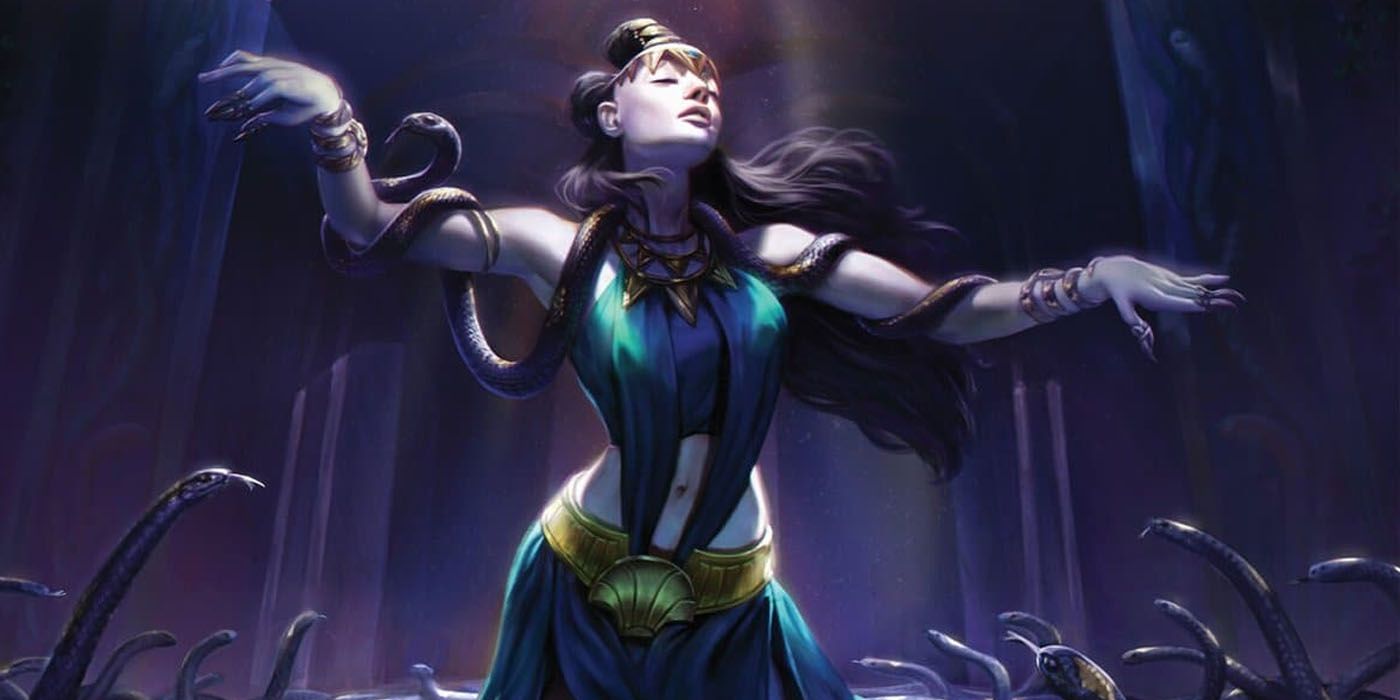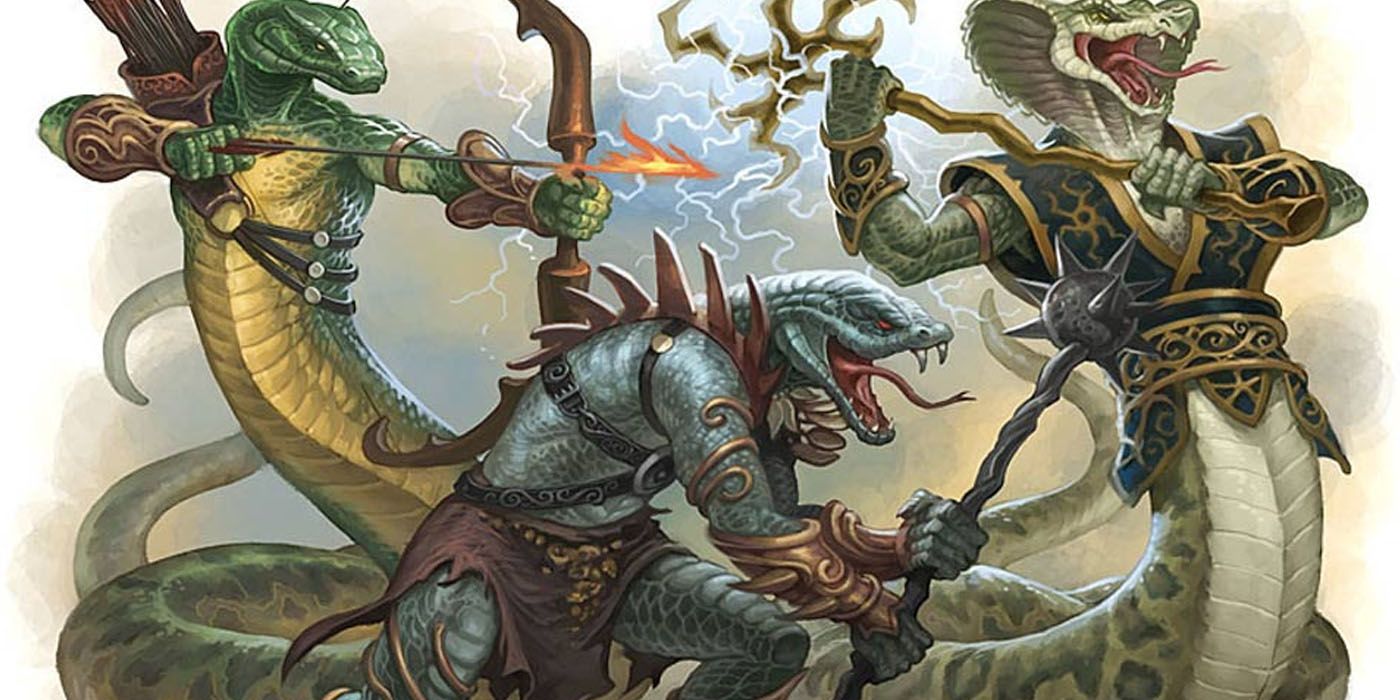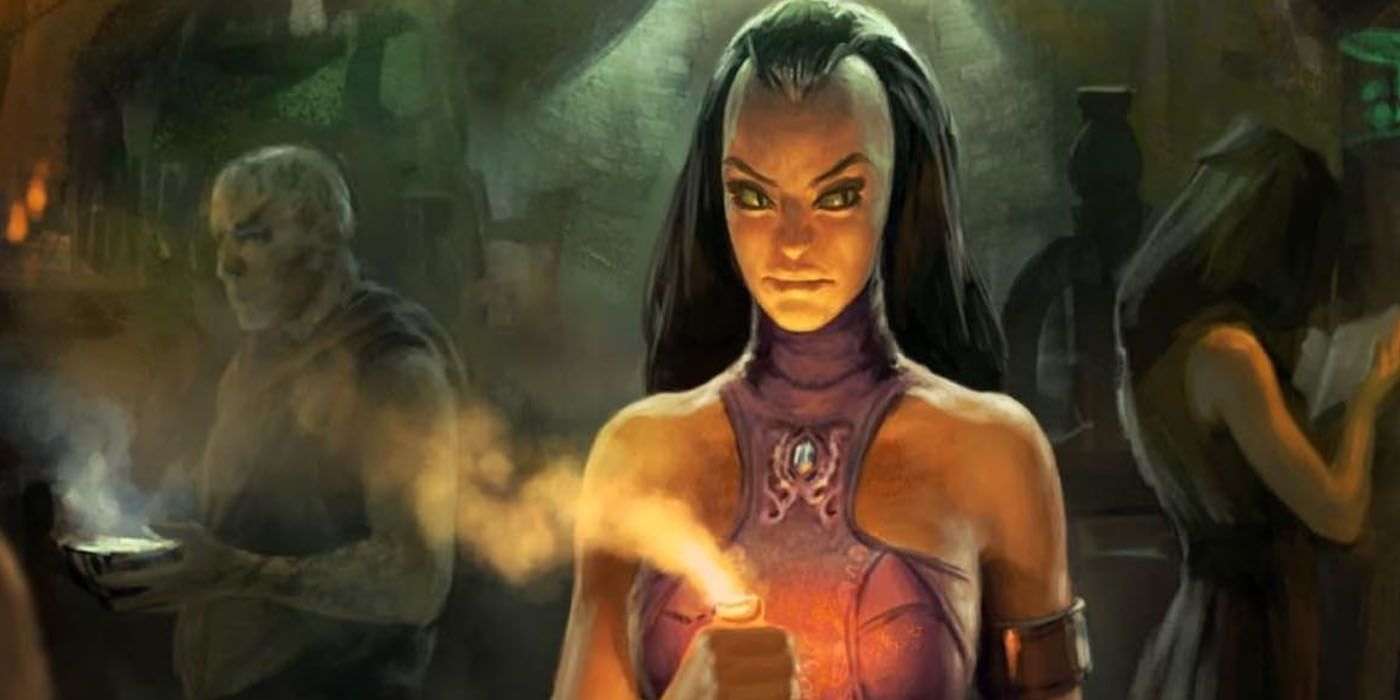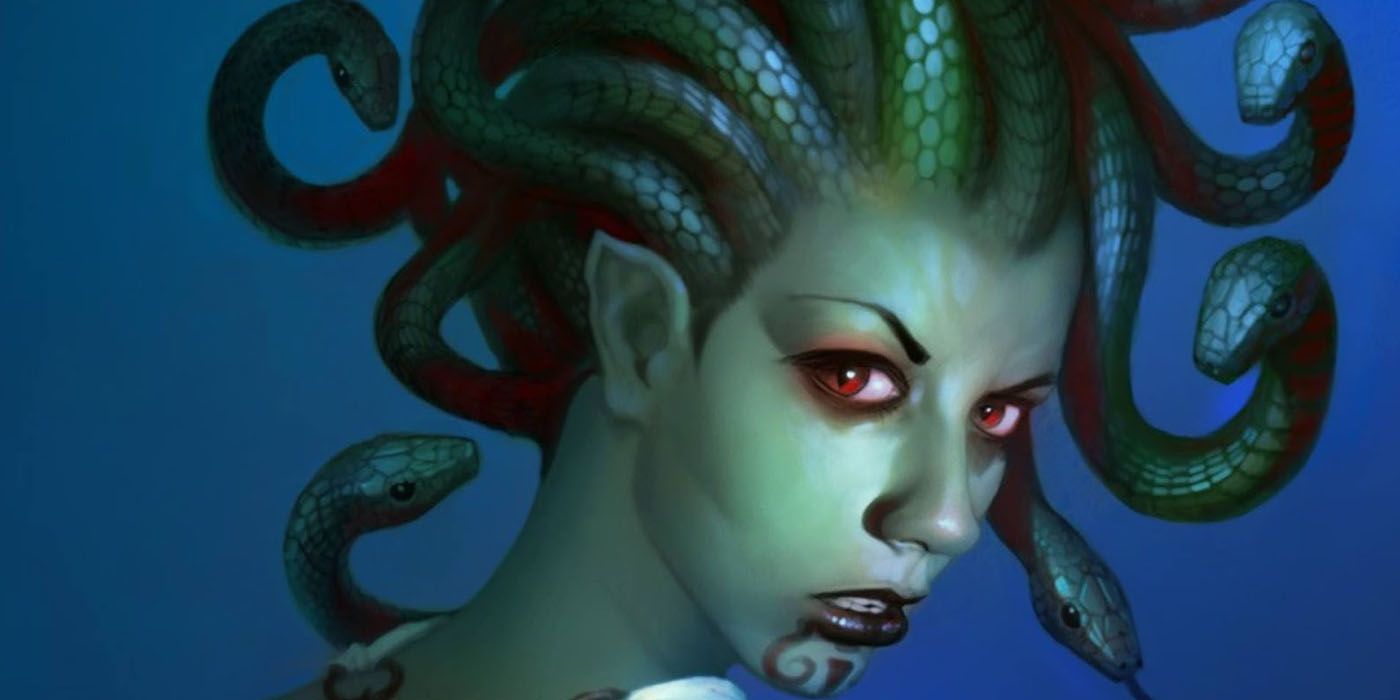It's sometimes difficult for Dungeons & Dragons players to convince their Dungeon Master to allow them to play an evil-aligned character, but the game itself evolves, so too does the concept of evil itself. For decades, Drow were considered the most decadently evil of all playable races, but Yuan-ti Purebloods make even the classic Dark Elves seem tame by comparison.
Volo's Guide to Monsters introduced a variety of potentially-wicked character races for players to experiment with, and Yuan-ti Purebloods are perhaps the most interesting option. After all, who wouldn't want to slither through the planes with greater purpose than lesser beings could have ever dared to dream?
What Are Yuan-ti in Dungeons & Dragons?
According to D&D lore, long ago, one of the original human races looked to snakes for guidance, as they embodied their most prized attributes. Cold and indifferent, these humans sought to detach emotions and intellect, realizing that they could achieve more at a faster pace than those who allowed their feelings to interfere with their decisions. This philosophy led them to believe they were the most superior race in creation, and their hubris prompted them to petition the serpent gods to make them even greater.
They began performing cannibalistic rituals, sacrificing those they deemed lesser in the name of the gods and consuming their flesh. Their sorcery led to them writhing with snakes in an effort to combine their flesh with the serpents so they might become more like them in both body and mind. The magic they sought worked, and the Yuan-ti began to take on a variety of snake-like features. Three major categories of Yuan-ti emerged: abominations, malisons and purebloods. All Yuan-ti are snake-like, though some more so than others, possessing serpentine bodies instead of legs or scaled, snaking arms that descend into hands.
Believing themselves to be superior in every way, Yuan-ti rarely mate with other humans. However, they may do so if the act of seduction could lead them towards achieving their lofty goals. When a Yuan-ti pureblood mates with a human, the offspring is almost always a pureblood, though they may appear entirely human at birth.
Yuan-Ti Abilities
Yuan-ti characters innately have some interesting traits and abilities. Because of the magic adapted them to their current forms, they thrive in spellcasting classes. Yuan-ti Purebloods get an automatic +2 Charisma and +1 Intelligence boost during creation, which make them excellent Bards, Warlocks, Sorcerers or Paladins because all four of those classes rely on CHA as their core stat. Because of their superiority complexes, the CHA boost helps make them persuasive, intimidating and deceptive (just like a snake).
The Intelligence boost is also great for Wizards and Artificers, or simply for honing important skills like Arcana, History, Investigation, Nature and Religion. Since Yuan-ti were born of a religious worship of serpents, it only makes sense that they would be knowledgeable about the true gods and the power of transformation that was bestowed upon them.
Yuan-ti Purebloods also have innate magical abilities that allow them to cast the Poison Spray cantrip. They can also cast the spell Animal Friendship an unlimited number times without a spell slot, but only if they are communicating with snakes. Additionally, Yuan-ti gain access to Suggestion at level three, which they can cast once per long rest without a spell slot. Their nature grants them magical resistance, giving them advantage on saving throws against spells and other magical effects. Plus, since these snakes are more or less poison to the core, they are immune to poison damage and the poisoned condition.
Yuan-ti Names
When naming a Yuan-ti character, it's important to consider their naming conventions. Yuan-ti names have been passed down through generations, with pronunciations or spellings evolving over time. They will add more sibilants to a name to make them more pronounceable for their forked tongues, which give them a hissing sound that reflects their heritage. These adopted names are accepted as a birth name variation, and Yuan-ti may answer to both the birth and adopted name. They may also choose a name relevant to the area they inhabit to ensure they fit into society.
Why You Should Play a Yuan-ti Pureblood
Traditionally, Yuan-ti Purebloods are as arrogant, emotionless, power-hungry and self-consumed as they sound, so developing a player character of this race may be challenging, particularly for someone who doesn't want to play an evil character. However, that also provides a great baseline for an epic character arc that develops over time. For example, a Yuan-ti with one human parent could be torn between two worlds depending on who raised them, either being challenged by a strange biological urge they don't understand or seeking to find another way of life thanks to the humanity within them.
Starting out with an emotionless nature also means there's an incredible amount of room for growth throughout a campaign. The character's exposure to moral situations may initially provoke laughable responses, but in time, their exposure to other party members may show them there's more to life than the success and superiority the Yuan-ti value.
On the other hand, a Yuan-ti character may not need to shed their old ways at all. If the DM permits evil-aligned characters, an Yuan-ti Pureblood PC will be free to follow their self-indulgent motives and embrace the superiority bestowed by the serpent gods themselves. There's plenty of room for interesting storytelling in either approach, an a Yuan-ti character is sure to make any game they participate in a little more interesting.





